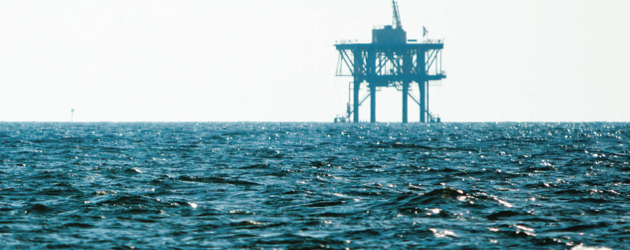
[dropcap3]T[/dropcap3]here are some events that take place that warrant reflection and comment. We are challenged by them in our thinking as Christians and in our responding as citizens. Some events trouble us because they confront our convictions and others because they are so complex they are overwhelming. Whether political corruption, war, natural disasters, acts of terror, or economic collapse, we live in a world where the impact of sin and the fall is evident everywhere we turn. [blockquote align=”right”]Some events trouble us because they confront our convictions and others because they are so complex they are overwhelming.[/blockquote]Life is not easy on this side of Eden. Still, we are, for better or worse, in this world with all of its challenges and dangers. We are called to seek the welfare of the city in which we live as the Bible teaches. We are to work for the common good of all people and care about our times. We also have stewardship responsibilities for the earth. For all these reasons, thinking about and learning from the most trying events of our times are important. The Deepwater Horizon oil leak is a perfect example of an event that is complex and overwhelming. It has implications for us in almost every area, from the ethical to the political, from the economic to the scientific. It is now part of our common history and it will shape our future in profound and practical ways for years to come.
For more than one hundred days this past spring and summer the news cycle was dominated by the Deepwater Horizon oil leak. For months there seemed to be little progress and little relief to the anxieties of business owners and residents along the Gulf Coast as the impact of the disaster grew to a scale of historic proportions. In April when the explosion and subsequent collapse of the oil rig occurred, eleven men tragically lost their lives in the accident. Despite this terrible loss it was still tempting to think that it was a temporary tragedy with minimal real impact for most of the country, and that those responsible for such things would “fix” it quickly. With every day and week that went by it seemed surreal that nothing was being (or could be) done. There was no plan to deal with such a problem. There was no solution in a box on a wall somewhere marked, “Break glass in the event of unstoppable oil leak on ocean floor.” The inability to get control of the situation shook our confidence. When experts began discussing detonating nuclear devices beneath the ocean floor, it was eerily apparent that we were in uncharted waters.
And it got worse. Estimated amounts of oil leaking into the ocean were suspect. Early reports of one thousand barrels a day leaking into the gulf were amended to a more likely amount of twelve to twenty thousand barrels a day. There was no agreement on what was happening let alone what to do. Uncertainty among government agencies, corporate officials, and scientific authorities working on the problem was evident. And Americans were asking questions that revealed frustration and concern: Who is in charge? How effectively can an oil slick measured in miles be contained? How can burning the surface oil be good if carbon emissions are bad? Why talk about alternative energy development when the oil is still pouring into the sea? Who can be blamed, right now? And most importantly, who is going to be made to pay?
As the weeks went on, the situation revealed itself for what it truly is – a very serious and very complex problem. The implications of the oil leak span the entire gamut of human endeavor and thinking. The emotional strain is also complex. This is a tragedy unlike an earthquake, a flood, or a hurricane where nature takes its course and no one can be blamed for what occurred, only how well or how poorly it is responded to. This tragedy is a human-made one, but with no vengeful enemy toward which to direct our anger or fear. Criticism was directed toward BP executives, the President, and safety inspection agencies. They responded, but resignations and investigations do not make disasters go away. Perhaps the public has grown weary as a result of these sobering complexities. Maybe people are simply overwhelmed, or think it is someone else’s problem or that everything is under control. But the disaster happened, and it has changed things. Like most of the serious and complex problems of life and the world we live in, it cannot be blamed on a single factor or fixed with a single, magic bullet.
 With nearly four million barrels of oil unaccounted for, this is now considered the world’s largest oil spill in history. The impact upon wildlife and the environment is epic. Some believe many species will be missing from the region for years and the unknown impact of over a million gallons of dispersants could alone change the ecosystems of the region for several decades. The impact upon the lives of those who fish the waters of the Gulf, attend to tourists along its shores, and drill for the oil America needs to keep moving is real and staggering. Local industries and small businesses continue to struggle in the aftermath. Many may not survive. Fishermen lost work, so too did oil workers with a moratorium on drilling. This is serious in an economy still reeling from elevated unemployment. Some have directed anger toward BP and wish the company ill. But this is not a simple response either. Individuals boycotting the oil giant by not buying gas at BP stations found themselves in a quandary because the people most hurt by their actions were local service station owners and employees. The international corporation is an easy target, but it employs thousands worldwide. If BP fails there could be ramifications upon an already strained global economy.
With nearly four million barrels of oil unaccounted for, this is now considered the world’s largest oil spill in history. The impact upon wildlife and the environment is epic. Some believe many species will be missing from the region for years and the unknown impact of over a million gallons of dispersants could alone change the ecosystems of the region for several decades. The impact upon the lives of those who fish the waters of the Gulf, attend to tourists along its shores, and drill for the oil America needs to keep moving is real and staggering. Local industries and small businesses continue to struggle in the aftermath. Many may not survive. Fishermen lost work, so too did oil workers with a moratorium on drilling. This is serious in an economy still reeling from elevated unemployment. Some have directed anger toward BP and wish the company ill. But this is not a simple response either. Individuals boycotting the oil giant by not buying gas at BP stations found themselves in a quandary because the people most hurt by their actions were local service station owners and employees. The international corporation is an easy target, but it employs thousands worldwide. If BP fails there could be ramifications upon an already strained global economy.